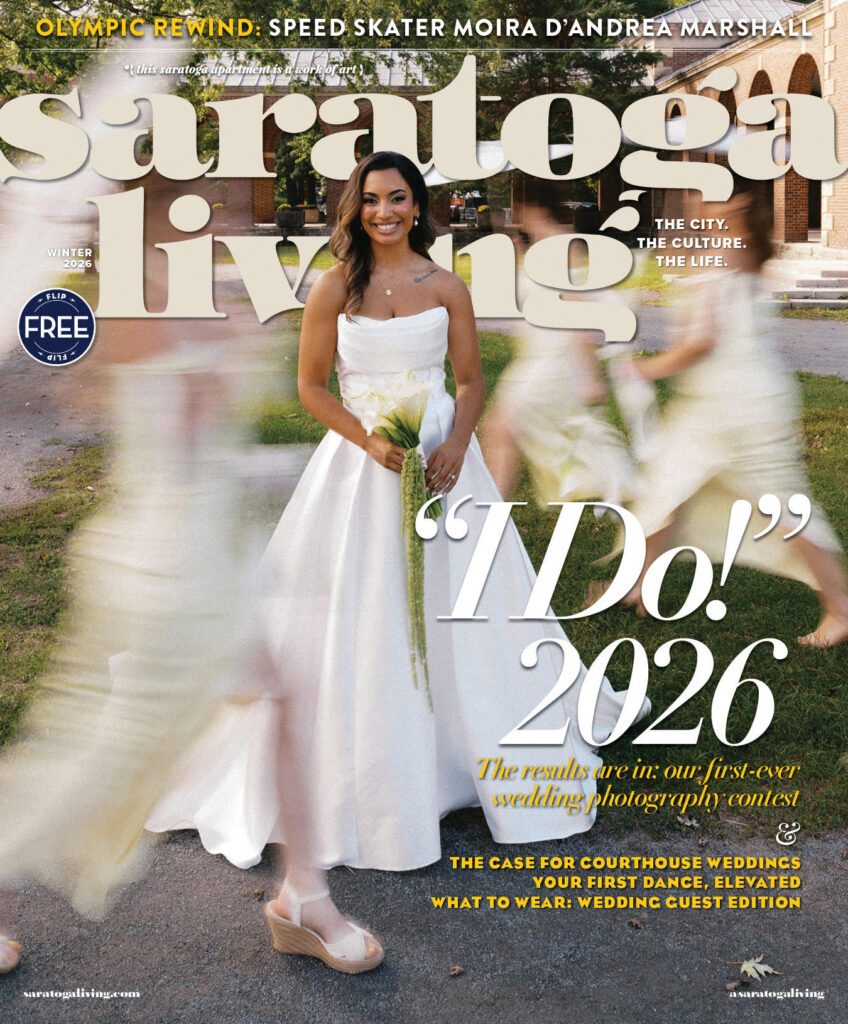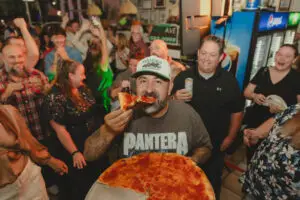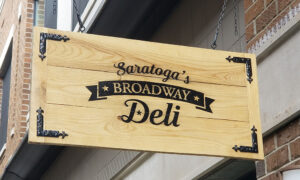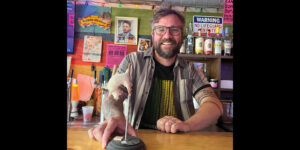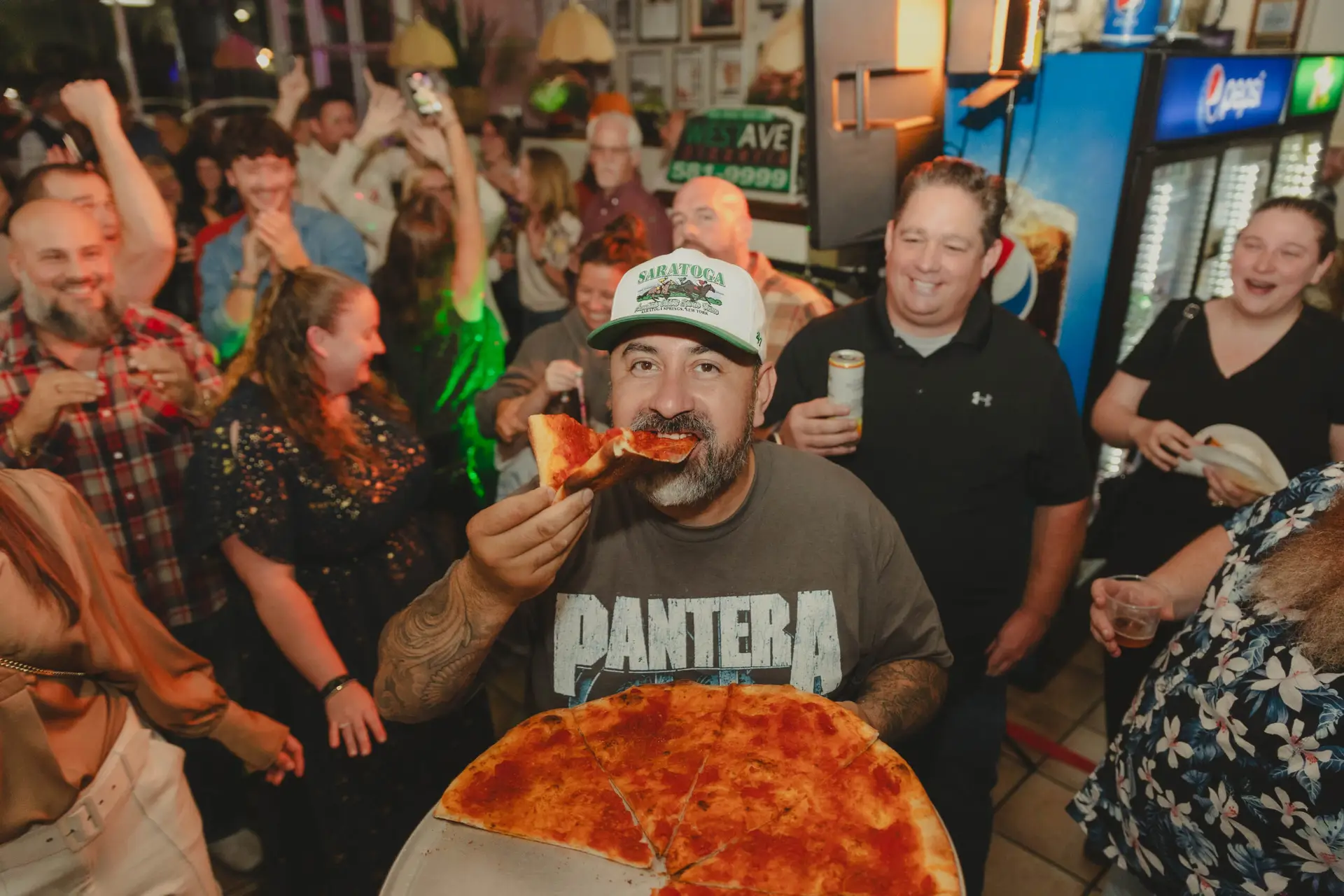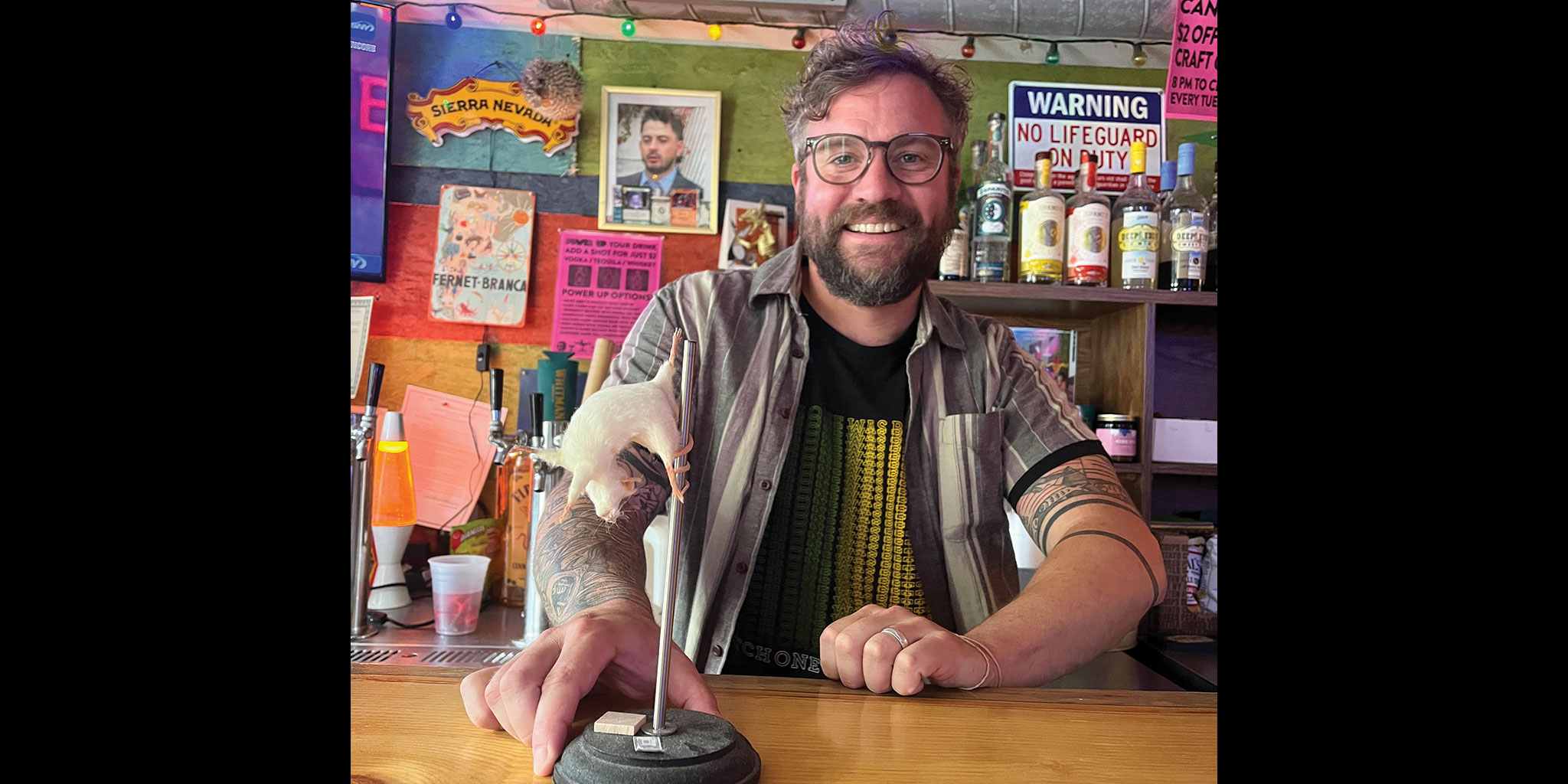SARATOGA SPRINGS, N.Y. – As always, the room was packed for the National Museum of Racing and Hall of Fame induction ceremony on Friday morning.
Inductees or representatives for this year’s bulky class of 16 – of which a dozen were in the Pillars of the Turf category – took their reserved seats near returning members of the Hall of Fame. Members of the public crowded into the Humphrey S. Finney Pavilion, not only to watch the ceremony, which was free to attend, but to take advantage of the opportunity to meet some of the sport’s legends.
But despite the crowd, there was one prime seat in the front row that was left empty, with the official Hall of Fame blazer presented to inductees resting on the chair. Atop it was a single pink rose, of the variety dubbed the “Marylou Whitney Rose.” John Hendrickson, president of the National Museum of Racing and the husband of the late “Queen of Saratoga,” brought the rose with him as he took the stage to accept for Pillar of the Turf Marylou Whitney.
Whitney, who died July 19 at age 93, was one of racing’s great philanthropists, in addition to her accomplishments as an owner and breeder, carrying on her family’s legacy in racing by campaigning Eclipse Award champion Bird Town and Belmont Stakes winner Birdstone. Whitney was beloved in Saratoga, credited with helping to revitalize and popularize the town via her influence as a socialite in the 1970s, and for major contributions to the arts scene here. Whitney, who was elected to The Jockey Club in 2011, was one of the founding members of the Thoroughbred Retirement Foundation and a major contributor to the opening of the Secretariat Center at the Kentucky Horse Park. She also has done substantial charitable work with backstretch workers.
Hendrickson delivered eloquent, succinct remarks – lasting about a minute – despite the emotion plain on his face during what he earlier acknowledged as “a hard day.” He recalled that Whitney was “extremely humbled” when she heard of her election to the Hall of Fame, announced in April.
“She told me she wanted to dedicate her induction to the horses and the people who love them, especially the unsung heroes, the backstretch workers,” Hendrickson said. “She said the sport of horse racing gave her the most incredible life, and she was extremely grateful. I want to thank all of you for loving Marylou. She loved this sport, and all of you, with her entire heart.
“So let us not cry because it’s over, let us smile because it happened,” Hendrickson concluded. “God bless you, and God bless Marylou.”
The audience gave Hendrickson and Whitney a standing ovation before the ceremony moved on to honor its other inductees. This year’s two contemporary inductees came from opposite ends of the spectrum, as three-time Eclipse Award champion racemare Royal Delta was inducted in her first year of eligibility, while Eclipse Award-winning jockey Craig Perret, who has been eligible since 1994, appeared on the ballot 12 times before being granted entry.
“I finally got off the also-eligible list, and look where I’m at now,” Perret, 68, joked.
In his acceptance speech, Perret recalled his 1990 Kentucky Derby victory aboard Unbridled as the signature moment of a career in which he also won the 1987 Belmont Stakes with Bet Twice and earned an Eclipse in 1990.
“I said, ‘my goal’s been reached,’ ” Perret, who retired in 2005, recalled. “Most horsemen and people, that’s what you dream about – Kentucky Derby, Kentucky Derby. That’s what everybody knows and loves.”
Royal Delta, the Eclipse champion 3-year-old filly of 2011 and older female of 2012 and 2013, won six Grade 1 races while trained throughout her career by Bill Mott, first for breeder Palides Investments and later for Benjamin Leon. Mott and Leon both took the stage to remember Royal Delta, who died in 2017 after producing her only foal.
“I was very lucky to train this mare,” Mott said. “I was able to train her mother, and for a while, I trained her grandmother. When you get lucky enough to get into these families, they just keep giving and giving, and Royal Delta is the result of one of those families. I was just so lucky.”
Royal Delta was one of three notable racemares honored. Regular rider Tony Black spoke fondly of 1976 champion sprinter My Juliet, while co-owners Peter M. Brant and George Strawbridge Jr., accepted on behalf of 1979 champion older female Waya, with both racemares inducted by the historic review committee. Black made comments Whitney surely would have approved of, pointing out the “unsung hero” Jim Maloney, My Juliet’s groom, who attended the ceremony.
The three living Pillars of the Turf inductees were on hand for the ceremony – James E. “Ted” Bassett III, 97, who will forever be tied to Keeneland; Arlington Park’s Richard L. “Dick” Duchossois, 97; and William S. Farish, 80, of Lane’s End Farm. All three were helped on with their Hall of Fame blazers by former track announcer Tom Durkin, who was the event’s master of ceremonies.
“This is a better jacket than I brought,” Duchossois joked.
Another late member of the Whitney family also was recognized this year in Helen Hay Whitney, with her great-grandsons Christopher and Peter di Bonaventura accepting. Another of racing’s great dynasties, the Phipps family, was well represented, with grandson Stuart S. Janney accepting on behalf of Gladys Mills Phipps, and longtime family trainer Shug McGaughey accepting on behalf of Ogden Phipps. Meadow Stud patriarch Christopher T. Chenery, who was involved in a famed foal-sharing agreement with the Phipps family, also was honored, with granddaughter Kate Chenery Tweedy making a repeat appearance on the pavilion’s stage. Tweedy also appeared last year at the induction of her mother, Penny Chenery.
Also inducted as Pillars of the Turf on Friday were John Hettinger, who, among other accomplishments, was a major figure in Thoroughbred aftercare, with son Bill Hettinger accepting; owner and breeder James R. Keene, with great-great grandson Keene Miller accepting; Frank E. “Jimmy” Kilroe, with Alan Balch, executive director of the California Thoroughbred Trainers accepting on behalf of that state industry stalwart; and Calumet Farm patriarch Warren Wright, Sr., with great-grandson Robert Lundy accepting via written remarks read by Durkin.
In the end, all the inductees and attendees, from the millionaires to the grooms, were tied together by a common passion – which Duchossois, who has developed his track’s signature Arlington Million into a major international event, spoke to.
“We all have one common language – horse racing,” Duchossois said. “There is no other industry in the world like the one we participate in.”
This story was originally published on DRF.com.







